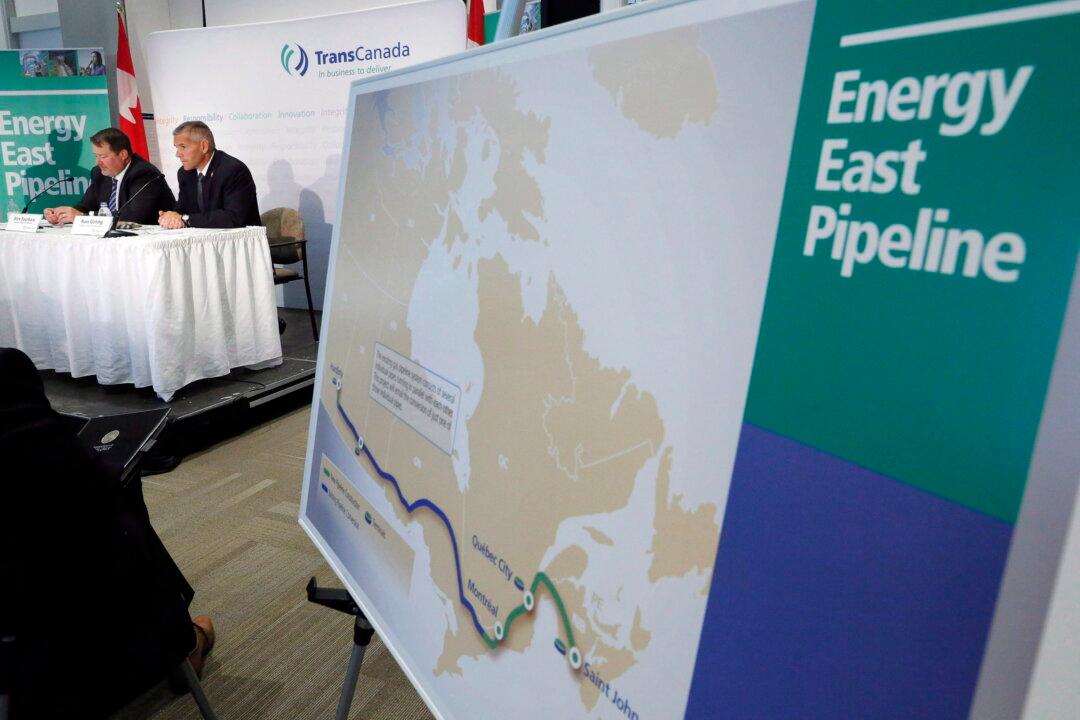Russia’s invasion of Ukraine is prompting renewed calls in Canada to bolster energy security, in particular by building oil and gas pipelines to supply the eastern provinces, and to play a greater role in supporting the energy needs of European allies.
“One would think that this would be the opportunity for Canada to pick up its game and begin the process of ensuring that we have energy security, by having a pipeline from east to west, and that we do not import anyone else’s oil,” said Dan McTeague, a former Liberal MP and president of Canadians for Affordable Energy, in an interview with The Epoch Times.
It would also show “that we are hoping to export our oil in a safe, responsible, environmentally effective manner that I think very few other nations can boast,” he added.
Energy analyst Jeff Kucharski, an adjunct professor at Royal Roads University, says energy security is fundamentally about ensuring stable, affordable, and sustainable supplies of energy.
“As one of the largest free market sources of global energy resources not controlled by state-owned enterprises, and with high environmental, social, and governance standards, Canada can contribute to global and regional energy security by cooperating with allies and partners to supply the energy and critical mineral resources they will need,” Kucharski said in a Macdonald-Laurier Institute report titled “The Evolution of Energy Security in the Indo-Pacific: Why Is It Important for Canada?”
On March 1, the U.S. benchmark West Texas Intermediate rose noticeably above US$100 a barrel to levels not seen since the heady days of 2014.
After a slew of sanctions against Russia that forced its stock market to shut down and its currency to fall to a record low, Prime Minister Justin Trudeau on Feb. 28 announced a ban on imports of Russian crude oil.
Canada hasn’t actually imported any crude oil from Russia since 2019, and it doesn’t import natural gas from that country either.
“What I would have expected the prime minister to do yesterday would be to redouble the effort to ensure this east-west corridor for pipelines to ensure that we have access to tidewater so that we can help Europe,” McTeague said.
Russian natural gas supplies to the European Union and indirectly the United Kingdom accounted for 32 percent of the region’s total gas demand in 2021, according to the International Energy Agency. The IEA also notes that Russia is the world’s third-largest oil producer and the largest exporter, with around 60 percent of its oil exports going to Europe.
Russian Energy Imports
Statistics Canada data shows that Canada imported energy products worth $378.8 million from Russia in 2021, with Quebec accounting for 58.6 percent of the total and Newfoundland and Labrador 35 percent. The imports are mostly refined petroleum products like motor gasoline or diesel.
Natural Resources Minister Jonathan Wilkinson followed up on Trudeau’s announcement by tweeting on March 1 that all refined and other petroleum products from Russia will also be banned.
“We continue to monitor the supply situation closely with partner International Energy Agency countries and, if necessary, are prepared to act jointly to maintain security of supply in energy markets,” Natural Resources Canada said in a Feb. 28 statement.
In advocating for a ban on Russian energy imports, McTeague tweeted on Feb. 27, “Enough with subsidizing Putin’s attack on Ukraine. We have blood on our hands.”
Quebec’s ministry of energy and natural resources told The Epoch Times that its provincial imports do not include crude oil or gas and that its supply chain for these primary energy products is 100 percent North American and mainly transported via pipelines.
“Imports from outside North America are not part of our energy policies or strategy, though some businesses may choose to import rather than purchase locally. As stated by Premier Legault, we will fully support any measure taken by the federal government in the context of the conflict between the Russian Federation and the Ukraine, including import restrictions,” press officer Genevieve Tremblay said.
McTeague argues that there shouldn’t be a distinction between importing raw product and importing processed product.
TD Securities pointed out in a Feb. 27 note to clients that Russia brought in US$160 billion last year from its exports of natural gas and crude oil, and said that if the country is able to continue to export, the revenues brought in should be able to cover TD’s estimate of what the Russian government and banking sector need in the short term.





